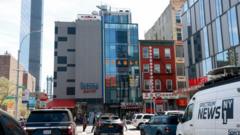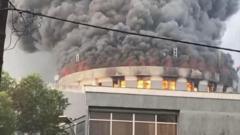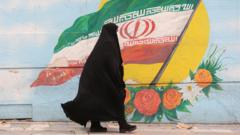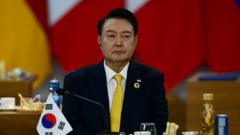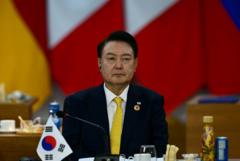Following a national security trial, a Hong Kong court has sentenced numerous pro-democracy figures, including prominent activists Benny Tai and Joshua Wong, to significant prison terms, generating widespread condemnation and fears of oppressed dissent in the region. Critics argue that these sentences serve to further entrench Beijing's control over Hong Kong, while the Chinese government defends the legal actions as necessary for maintaining stability.
Long Sentences for Hong Kong Pro-Democracy Leaders Spark Outrage and Despair
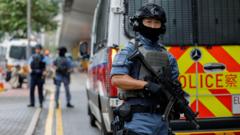
Long Sentences for Hong Kong Pro-Democracy Leaders Spark Outrage and Despair
A Hong Kong court sentenced 45 pro-democracy activists to prison for subversion, raising concerns about the future of political dissent in the city under the national security law.
A Hong Kong court has handed down lengthy prison sentences to 45 pro-democracy leaders, most notably Benny Tai, who received a 10-year sentence, and Joshua Wong, whose term is over four years. This ruling stems from a national security trial that has been labeled highly controversial, and represents the most significant application of the national security law (NSL) imposed by China shortly after the pro-democracy uprisings in 2019.
The defendants, part of a group known as the Hong Kong 47, were accused of conspiring to subvert state power by organizing an unofficial primary election for local lawmakers later in 2020. The elections were intended to strengthen the opposition's ability to counter Beijing’s influence, but the HK authorities framed them as attempts to destabilize the government. Many of the activists, including lawmaker Claudia Mo and first-time participants like Owen Chou, have been in detention since their arrests in early 2021, following Beijing's stringent push against dissent.
The sentences have drawn grief and frustration from supporters and family members, with some observers noting the drastic decline of the pro-democracy movement and the erosion of the rule of law in Hong Kong. Emily Lau, a former Democratic Party chair, expressed her sorrow over the families' plight, noting that they had been unable to attend the court proceedings due to overflowing crowds.
The Chinese government maintains that the NSL is crucial for restoring stability in Hong Kong, asserting that no one should engage in illegal actions under the guise of democracy. Beijing criticized Western nations for undermining the rule of law, emphasizing that these sentences are a warning against potential challenges to national security.
International reactions have been swift, with the UK government describing the convictions as a blatant violation of political freedoms, while the US denounced the trial as politically driven. Critics of the NSL claim the law is being employed as a tool for silencing dissent and instilling fear among the populace.
As solidarity rallies occurred outside the courthouse, some supporters expressed hope for the future, while feelings of despair over the current political atmosphere loomed large. The overarching sentiment is one of fear for a lost generation of pro-democracy activists amid an increasingly subdued public life in Hong Kong, a city once known for its vibrant political engagement and spirited protests.
While Beijing's grip appears stronger than ever, some experts argue that the attempt to extinguish dissent may backfire, as public trust in the government continues to erode. Others remain hopeful that the voices of the Hong Kong people, even if muted for now, will eventually rise again despite the significant consequences imposed on those who dared to challenge the government.







